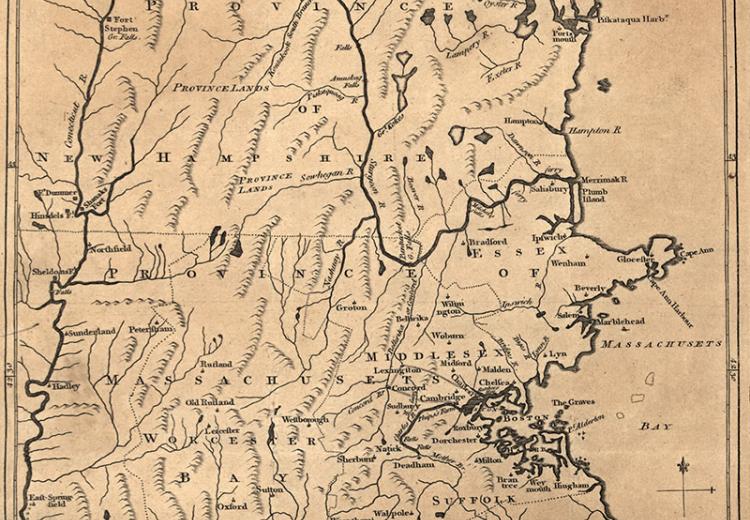Taking Up Arms and the Challenge of Slavery in the Revolutionary Era

A Map of 100 miles round Boston, 1775.
After five years of almost constant protests by American colonists, starting with the Stamp Act in 1765, a period of superficial calm reigned in the relations between England and the colonies from 1770 to 1773. However, the struggles of the past half-decade had created deep resentments and fissures that were not to be healed easily—or ever. In addition, the American colonists had begun to develop a network of communications—the Committees of Correspondence, which had been in operation since 1772—to share information about their grievances regarding British imperial policy.
During this evolving struggle, the American insurgents frequently denounced Britain's arbitrary and despotic policies by asserting that the Americans would not be "slaves" to England. Were these leaders conscious of the irony/hypocrisy/contradictions in their refusals to be "slaves" to English policies while maintaining thousands of enslaved Africans among them? Why was the rhetoric of enslavement and resistance to it so central to the American enterprise at this time?
This lesson is designed to help students understand the transition to armed resistance and the contradiction in the Americans' rhetoric about slavery through the examination of a series of documents.
Guiding Questions
Did the turn to armed resistance by the American colonists in 1775 indicate that a decision for independence/revolution had been made consciously at that point?
Why was the imagery and rhetoric of "enslavement" so important to these leaders and how does it relate to African chattel slavery in the colonies?
Learning Objectives
Explain the specific events and factors that led to the beginning of armed resistance by the Americans.
Discuss the principles and ideals that influenced the thinking of the colonists.
Explore alternatives to armed resistance by the Americans at this point.
Analyze the connection between the start of armed resistance and the decision to declare independence in July of 1776.
Understand the irony of how many American patriots used the symbolism of their enslavement to England as a rallying cry for their cause, while enslaving Africans in America.
